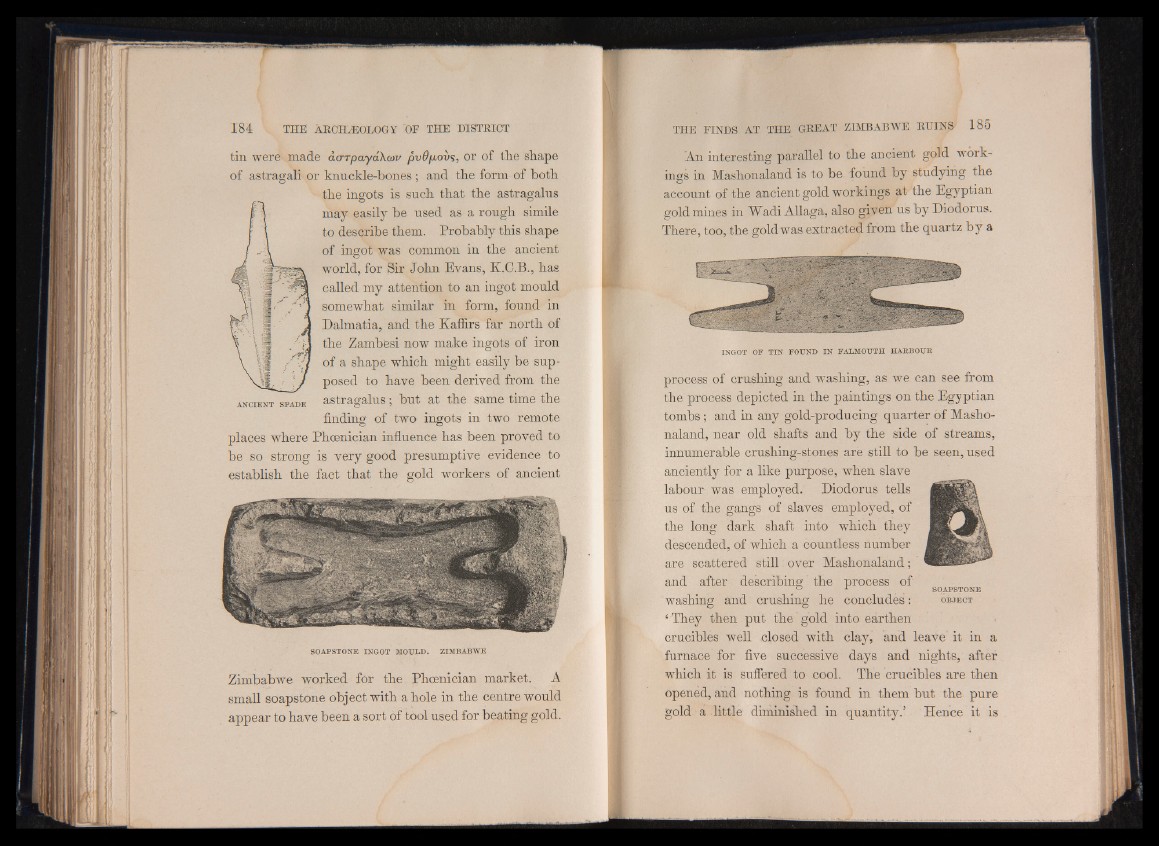
tin were made aarpayaXaiv pv0pov<s, or of the shape
of astragali or knuckle-bones ; and the form of both
the ingots is such that the astragalus
may easily be used as a rough simile
to describe them. Probably this shape
of ingot was common in the ancient
world, for Sir John Evans, K.C.B., has
called my attention to an ingot mould
somewhat similar in form, found in
Dalmatia, and the Kaffirs far north of
the Zambesi now make ingots of iron
of a shape which might easily be supposed
to have been derived from the
a n c i e n t s p a d e astragalus; but at the same time the
firuling of two ingots in two remote
places where Phoenician influence has been proved to
be so strong is very good presumptive evidence to
establish the fact that the gold workers of ancient
SO APSTONE IN G O T M O U LD . Z IM BA BW E
Zimbabwe worked for the Phoenician market. A
small soapstone object with a hole in the centre would
appear to have been a sort of tool used for beating gold.
An interesting parallel to the ancient gold workings
in Mashonaland is to be found by studying the
account of the ancient gold workings at the Egyptian
goldmines in Wadi Allaga, also given us by Diodorus.
There, too, the gold was extracted from the quartz by a
ING OT OF T IN FO U N D IN FA LM O U TH H A R B O U R
process of crushing and washing, as we can see from
the process depicted in the paintings on the Egyptian
tombs ; and in any gold-producing quarter of Mashonaland,
near old shafts and by the side of streams,
innumerable crushing-stones are still to be seen, used
anciently for a like purpose, when slave
labour was employed. Diodorus tells
us of the gangs of slaves employed, of
the long dark shaft into which they
descended, of which a countless number
are scattered still over Mashonaland;
and after describing' the process of
washing and crushing he concludes:
SO AP STONE
O B JE C T
‘ They then put th e ' gold into earthen
crucibles well closed with clay, and leave it in a
furnace for five successive days and nights, after
which it is suffered to cool. The crucibles are then
opened, and nothing is found in them but the pure
gold a .little diminished in quantity.5 Hence it is